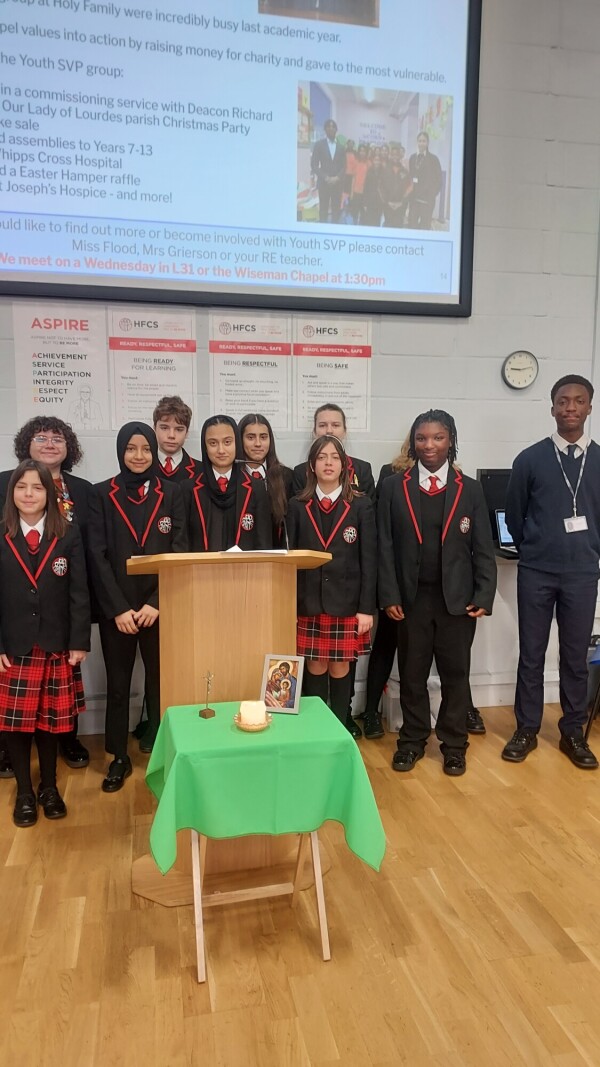Catholic LifeCatholic Social Teaching
Catholic Social Teaching in Action
Catholic Social Teaching (CST) is the lens through which we view the world - and act upon it. It is taught across the curriculum, shaping how subjects explore issues of justice, dignity, and the common good.
CST underpins everything we do: it informs our policies, decisions, actions, and relationships. Every house charity links to CST themes, and students lead fundraising and awareness projects.
Click here to see what we do:
Catholic Social Teaching (CST) is explicit, coherent, and integral to the curriculum at Holy Family Catholic School & Sixth Form. This document demonstrates how CST shapes curriculum intent, implementation, and impact across subjects and key stages, ensuring that the school’s Catholic mission is lived consistently through teaching, learning, and assessment.
Read below how at Holy Family we ensure there is a shared responsibility to ensure that the curriculum is shaped by the Gospel and the social teaching of the Church, so that students are not only educated academically but formed in faith, conscience, and social responsibility.



